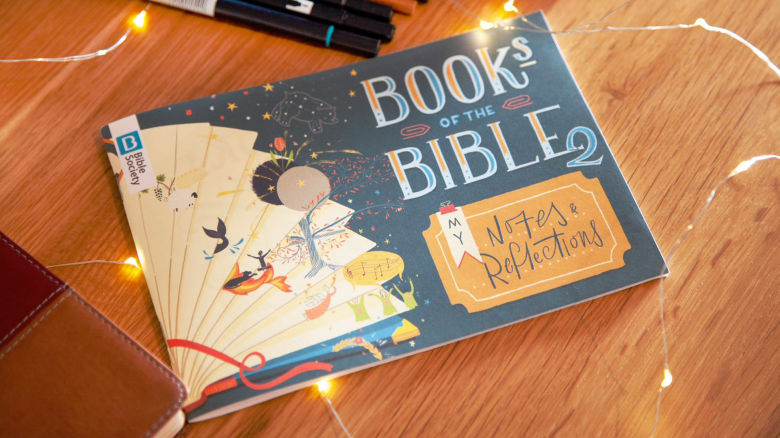Revelation is a call to Christians to remain faithful in the face of the disasters that they saw happening all around them. The underlying message is that in spite of the fact that it might seem evil is unconquerable, God is waging war in heaven and there is no doubt at all that he will win. The book is a series of visions and it can sometimes help to understand Revelation if you try and see in your mind’s eye what is being described. Despite its weird imagery, it contains a message of great hope and reassurance.
Listen! I am standing at the door, knocking; if you hear my voice and open the door, I will come in to you and eat with you, and you with me. (Revelation 3.20)
1Then I saw a new heaven and a new earth; for the first heaven and the first earth had passed away, and the sea was no more. 2And I saw the holy city, the new Jerusalem, coming down out of heaven from God, prepared as a bride adorned for her husband. 3And I heard a loud voice from the throne saying, 'See, the home of God is among mortals. He will dwell with them; they will be his peoples, and God himself will be with them; 4he will wipe every tear from their eyes. Death will be no more; mourning and crying and pain will be no more, for the first things have passed away.' (Revelation 21.1–4)
1Then the angel showed me the river of the water of life, bright as crystal, flowing from the throne of God and of the Lamb 2through the middle of the street of the city. On either side of the river is the tree of life with its twelve kinds of fruit, producing its fruit each month; and the leaves of the tree are for the healing of the nations. (Revelation 22.1–2)
Apocalyptic literature is not easy to read, and Revelation is a particularly difficult example of this kind of writing. It contains odd imagery and visions that are hard for us to comprehend.
Revelation is made more complex by the vast number of interpretations that have been produced over the years about ‘what it really means’. Probably the best thing to do is to try, as far as you can, to read it at face value and see what impression you get of it then.
The book of Revelation states in 1.1 that it contains the revelation of Jesus Christ which God made known by sending his angel to his servant John.
Church tradition has identified John as John son of Zebedee, one of the 12 apostles. It is worth noting, however, that John never makes this claim in the book and so could be, as some suggest, an early Christian prophet who was also called John (then, as now, John was a common name).
Another point of importance is whether this John is connected to the John who is thought to have written the fourth gospel. Many scholars today would say that the theology and tone of the two books are very different (even down to using different Greek words for ‘lamb’) which suggests that they are not written by the same person. It is possible, though that they both belonged to the same community of thinking – in its theology, Revelation is much closer to John’s Gospel than to Paul’s letters.
If the author is John the apostle, then he was the brother of James, called by Jesus to follow him early in his ministry. He is often thought to be the 'beloved disciple' of John’s Gospel (see introduction to John’s Gospel for more on this). If he was, then when Jesus was on the cross, he handed over care for his mother to him. Christian tradition states that he took her to live in Ephesus, where he lived to a ripe old age (around 100).
If the author is a different John, then we know much less about him. He was a prophet in the early Church and spent some time living on Patmos, possibly exiled there, where he received his vision.
Most people think that Revelation was written towards the end of the first century, in 85-95 AD, though a few would point to an earlier date just before the Jewish War (AD 68-9).
What is clear is that the book was written at a time of persecution and upheaval. It looked as though the world as the people knew it was coming to an end and that evil was going to win. The whole book is concerned with reminding people that God will be victorious.
The book of Revelation is a piece of 'apocalyptic' literature. The word comes from the Greek word ‘apocalupsis’, which means 'revelation' (in other words, the book of Revelation is called Apocalypse in Greek). Apocalyptic literature was concerned with revealing the world as God saw it rather than as human beings saw it. Some apocalyptic texts, though not all, are interested in what will happen at the end of the world.
1.1–3.22 The letters to the seven churches
4.1–7.17 A vision of the heavenly throne and the opening of seven seals
8.1–11.19 The angels blow seven trumpets
12.1–15.8 The victory over the dragon and the beast
16.1–19.10 The vision of seven plagues and the fall of Babylon
19.11–22.21 A vision of the new Jerusalem
There will be lots of names you will not know; don’t worry if you can’t place them all. The key ones are given below.
Patmos, Ephesus, Smyrna, Pergamum, Thyatira, Sardis, Philadelphia, Laodicea, Babylon, Asia, Asia Minor, Babylon, Euphrates, Jerusalem, Judah, Laodicea, Mount Zion, Philadelphia, Sodom, Thyatira, Zion
Asher, Balaam, Balak, Benjamin, Israel, Issachar, Jabesh-gilead, Jezebel, John of Patmos, John the elder, Levi, Manasseh, Mark, Moses
Apocalyptic literature, Alpha, Omega, golden lampstands, censer, Altar, Ark of the Covenant, Day of the Lord, food offered to idols, Gospel, Hades, Hebrew, idols, lampstand, synagogue
Many people struggle to make sense of Revelation. As you read, don’t try to understand all the details; just try to see it in your mind’s eye. Think of it as a large and complex picture – sometimes this helps.
One theme that runs all through the book is how what is going on in heaven affects what is happening on earth – look out for this as you read.
Above all, Revelation is a book of hope – look out for themes of hope as you read.
Throughout the centuries the people who have related most closely to Revelation are people who are going through great suffering. Reflect on this and see if you can work out why.

Here are 8 handy tips to get your book club up and running.

Here are some ideas to get you started.

7 top tips for reading the Bible
The Bible can seem overwhelming, boring and difficult, but a few basic tips can help you understand it more. Try these…
Books of the Bible journal: 2nd Edition
Journey through the Bible, one book at a time, with the 2nd edition of our Books of the Bible journal.
